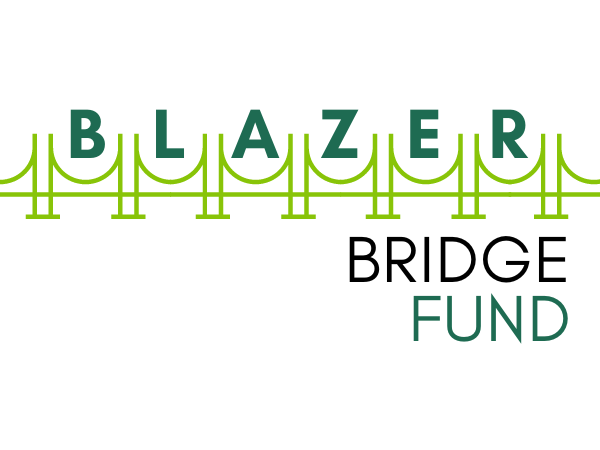In its third year, the Blazer Bridge Fund (BBF) will provide support to nine innovative projects from University of Alabama at Birmingham (UAB) inventors, including the development of a novel antibody to target cancer, a matrix for advanced membranous bone regeneration, and a web-based AI communication coaching app.
The BBF, launched in spring 2023 by the Harbert Institute for Innovation and Entrepreneurship (HIIE) at the University of Alabama at Birmingham (UAB), is intended to identify and assist in the development of promising ideas, discoveries, innovations and/or technologies from UAB faculty and staff that have commercial potential.
Since the program’s inception, the HIIE has invested $900,000 in 21 projects.
Nine projects is the most ever supported by the BBF in one cycle, according to HIIE Senior Director Karthik Gopalakrishnan, Ph.D.
“This year’s Blazer Bridge Fund cycle was our biggest yet—we were able to support nine projects, the most we’ve ever funded in a single round,” said Karthik Gopalakrishnan, Ph.D., HIIE Senior Director. “What’s especially exciting is that this support reached teams from across campus. It’s a great example of how innovation thrives when we invest in a broad range of ideas and collaborators.”
The nine projects selected for this funding round are:
- Development of a novel inhibin alpha targeting antibody for cancer and other applications, invented by Mythreye Karthikeyan, Ph.D., of the Department of Pathology, and James Kobie, Ph.D., of the Division of Infectious Diseases.
- Novel vaginal orthosis for post-surgical healing after vaginal reconstructive surgery for pelvic organ prolapse (NOVa Study), invented by Holly Richter, M.D. and Max Cadena, M.D., of the Department of Obstetrics and Gynecology.
- Glycoengineering of IgA1 for protection against bacterial proteases and enabling biomedical applications, invented by Todd Green, Ph.D., Jan Novak, Ph.D. and Janet Yother, Ph.D., all of the Department of Microbiology.
- Development of novel Gd3+ free protein-based MRI contrast agents, invented by Jenny Yang, Ph.D., of the Division of Hematology and Oncology.
- Triosteo matrix: advanced membranous bone regeneration, invented by Kyounga Cheon, D.M.D., of the School of Dentistry and Ho-Wook Jun, Ph.D., of the Department of Biomedical Engineering.
- AI-accelerated translational development of natural product or small molecule analogs as PHGDH inhibitors for Alzheimer's disease treatment, invented by Jake Chen, Ph.D., and Sixue Zhang, Ph.D., of the Department of Biomedical Informatics and Data Science.
- IRB Assistant – generative AI for accelerated, compliant human subject research protocol development, invented by Ryan Melvin, Ph.D., and Ryan Godwin, Ph.D., of the Department of Anesthesiology and Perioperative Medicine.
- Precision Brain Health (PBH) companion hybrid application, invented by Kristine Lokken, Ph.D., in the Department of Psychiatry and Behavioral Neurobiology.
- DISCovery: Bringing DISC to Life – web-based AI communication coaching app, invented by Cori Perdue, Ph.D., and Shivani Palaparthi of the Collat School of Business.
The BBF brought in 41 applications for the 2025 funding round, representing 98 inventors in 45 academic departments and divisions across nine schools.
“This year’s Blazer Bridge Fund applicants brought forward some truly brilliant ideas. We’re proud to have funded so many of them,” said Gopalakrishnan. “We were especially proud to have funded inventors from four different UAB schools – the Heersink School of Medicine, the School of Engineering, the School of Dentistry, and the Collat School of Business. These projects reflect the potential of cross-campus collaboration and the shared commitment to turning bold ideas into real-world impact.”
Learn more about the Blazer Bridge Fund here.
-- Sept. 16, 2025